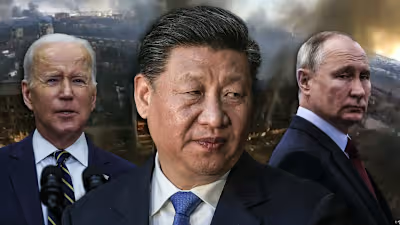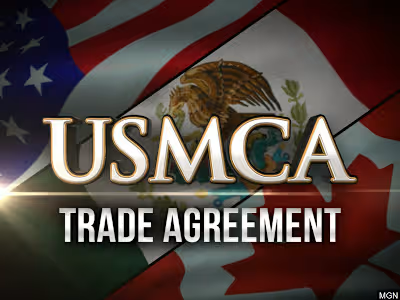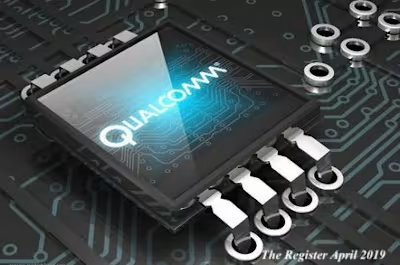New Friction Between the U.S., Iran, and China Makes Cyber Warf…
CREDIT: AP/GETTY IMAGES
By
Sam Kessler – Chief & Managing Editor and Contributor
Dustin Oaks – Contributor
*Note: The two co-authors also wrote another article piece for Asian Affairs Magazine that discusses new U.S. Secretary of Defense Mark Esper’s approach to tackling the Iran issue with a focus on the cyber, nuclear, proxy warfare, and China issues that surround it. The Asian Affairs Magazine article was posted in both print and digital formats for the September 2019 issue and is titled, “Esper Faces A Formidable Foe”.
_________________________________________
Geopolitical tensions are increasingly tenuous now between the U.S., Iran, and China as the recent string of naval incidents in the Strait of Hormuz have illustrated the growing complexities in their regional and geopolitical relationships. The United States and members of the international community have addressed the global need to enhance a naval security presence in the region to safeguard shipping lanes. However, it is just a part of a list of other key U.S. strategic interests in the region.
For instance, the U.S. withdrawal of the 2015 Iran Deal (JCPOA) means that it will remain a priority to take any necessary initiatives toward limiting and de-escalating Iran’s missile program and capacity, as well as continuing to counter their regional proxies. However, the absence of diplomatic negotiations between the two nations remains a concern for U.S. policymakers. In fact, newly appointed U.S. Defense Secretary, Mark Esper, recently stressed the need to go back to the negotiating table with the Iranian government and iron out an updated version of the 2015 JCPOA that President Trump had withdrawn last year out of protest of the agreed conditions. Any attempts to update the JCPOA will prove to be extremely difficult as several signatory nations are unhappy with the U.S. withdrawal. As a result, they are attempting to keep the appearance of preserving it as a way to limit Iran’s missile development escalation.
Secretary of Defense Esper expressed his belief that those nations still believe that Iran’s nuclear path remains a key concern to them as well. However, the U.S. and allies like Saudi Arabia and Israel remain very much involved and committed to tackling what they perceive to be a growing Iranian threat as regional tensions continue to escalate and redefine the geopolitical status. In addition, Defense Secretary Esper mentioned in his confirmation hearing that“diplomacy should result in an ‘updated’ Iran deal that covers ‘with finality’ Iran’s nuclear program, as well as its intercontinental ballistic missiles”. Pulling out of deals and renegotiating new ones has become a common tactic used by the Trump administration but the question remains if it will actually work with the Iranian government, along with the other players that signed up on the 2015 deal.
China’s Middle East Relationships
Chinese President Xi Jinping reviews an honor guard as he is welcomed by his Iranian counterpart Hassan Rouhani. AP Chinese President Xi Jinping and his Iranian counterpart Hassan Rouhani prepare to shake hands at the conclusion of their joint press conference at the Saadabad Palace in Tehran. SOURCE: AP 2016
Also, the U.S. is dealing with an expanding trade war and great power competition with the People’s Republic of China (PRC) that has found its way into the Middle East. The PRC continues to develop a wide assortment of Chinese strategic interests as well as energy and economic investments in the region via their Belt and Road Initiative (BRI) and leadership in the Beijing controlled Shanghai Cooperation Organization (SCO). More importantly, China has recently upgraded Iran’s “Observer Status” in the SCO to what they referred as now being called a “Comprehensive Strategic Partnership”. This is essentially a bilateral partnership between China and Iran as it correlates with three major energy projects in which the Chinese have invested hundreds of billions of dollars into Iran’s energy infrastructure and oil wells that will ensure their long term energy security.
In addition, there is an ongoing international investigation that is being conducted by U.S. federal authorities who are charging Huawei’s Chief Financial Officer, Meng Wanzhou, with espionage and violation of sanctions with Iran. Huawei controls Skycom Tech Co Ltd and another shell company called Canicula Holdings Ltd. The importance of this case is that Huawei has been using Skycom Ltd to shield sales of telecommunications equipment to Iran and Syria. The U.S. investigators found documents that link a high-level Huawei executive as being their Iran manager. They also list three additional Chinese-named individuals as having the ability to sign on behalf of Huawei and Skycom bank accounts within Iran. These deals all but violate sanctions with Iran and have played a significant role in fueling an escalated cyberwar between the United States, Iran, and China.
Moreover, the Chinese have also invested in trading relationships and infrastructure projects that are worth several billions of dollars with neighboring Middle East countries like Saudi Arabia with a $65 billion bilateral trade deal. Some experts say a relationship with Saudi Arabia will complicate Beijing’s situation with Iran as they prefer to remain amicable with as many nations as possible in the Middle East. However, renewed sanctions on Iran after the U.S. withdrawal of the 2015 JCPOA deal, has enabled them to focus more eastward as they continue streamlining their relationship with the Chinese government.
The aftermath of the recent naval incidents in the Strait of Hormuz is significantly crucial to follow as militaries in the region are at heightened alerts while the Chinese and U.S. governments are mixed in their willingness to enter into a major conflict with Iran. After all, it is more in the benefit of the Chinese government to divert the current U.S. policy of rebalancing its strategic tactical interests away from the Middle East and more towards Southeast Asia. Meanwhile, China would still prefer to keep the Middle East intact for their strategic interests.
Stuxnet and Nuclear Enrichment Drama Meets Operation Cleaver
In the meantime, the cyber warfare domain is where a majority of the daily battles between the United States and Iran are being fought. The first major reporting of this began around 2010 when the Iranian government disclosed that the Stuxnet computer malware virus had caused serious damage to their centrifuge system of enriching Uranium. This was a major setback to Iran’s nuclear program which began in 1987 and this particular cyber-attack showed sophistication and determination by a foreign actor to prevent or slow it down. The Iranian government still blames the U.S. and Israel despite neither confirming nor denying the allegations.
Stuxnet occurred at a time when US-Iranian political ties were already pretty stringent. However, the ramifications of Stuxnet on the Iranian government can still be felt in their current-day policies. This caused catastrophic failure and damage to the centrifuges and Uranium at Iran’s Natanz Enrichment Plant by someone having physically inserted a USB thumb drive into their computer network. Ultimately this had set the Iranian nuclear efforts back by months if not by several years.
The Iranian response to Stuxnet was the creation of “Operation Cleaver” in which they went on a hacking campaign to target sixteen countries and their critical infrastructures. This was widely underreported when the previous U.S. Administration created the Iran nuclear deal (JCPOA). On the U.S. and Chinese side of this operation, the Iranians only targeted the Chinese Aerospace industry while they targeted the U.S. domestic industries such as airlines, education, chemicals, transportation, energy, utilities, and telecommunications as well as their military, government, and Defense Industrial Base (DIB).
A Resurgence in Cyberwarfare Focus
With the current U.S administration having revoked its predecessor’s nuclear deal with Tehran (JCPOA), the resurgence of cyber-attacks from both Iran and China have drastically increased. The sophistication of these attacks are not the typical denial-of-service attacks we’ve seen in the past. Instead, these attacks are committed by hackers who are exploiting weaknesses in the internet’s core infrastructure in order to steal the web traffic that passes between government agencies, banks, and businesses that manage their back-end infrastructure. Since President Trump is seen as taking a hard stance on the trade agreements with China, Beijing hackers have begun to increase their targeting of American businesses, especially those in the high-tech and defense sectors.
Back to Business as Usual?
Both sides continue to have strategic interests in this region that are either jeopardized or being put on hold due to geopolitical leveraging tactics. However, as a campaign promise, U.S. President Donald Trump declared that he would not put the U.S. into another Middle East war and the current Iranian friction will be a huge test in whether he keeps it or not. In addition, he also promised to beef up the United States defense posture in Southeast Asia, which is a key part in U.S. foreign policy that attempts to curb Chinese expansionism in that region.
The current Middle East tensions may witness limits being tested but an actual escalation of armed conflict may not become a full reality just yet. This is mainly due to larger nations having greater policy and leverage implementation tools as well as alternative measures of retaliation and influence that have yet to be fully exhausted. Creating greater maritime security in the form of an international united force that ensures safe passage in the Strait of Hormuz may end up being just enough to quell this latest batch of incidents for now. Meanwhile, the cyber battles and the geopolitical competition continues in the public arena as well as in the shadows.
_______________________________________________________
Sam Kessler is a freelance writer with a global security, geopolitics, and business/finance background. He also has an M.A. in National Security and Intelligence Analysis from American Military University (AMU), which is part of the American Public University System (APUS). He can be contacted via his website/blog at www.samkessler.com
_______________________________________________________
Dustin Oaks is a freelance writer and consultant on foreign intelligence organizations and their cyberwarfare capabilities. He has a B.A. in Intelligence Studies and is currently working on his MBA degree with a concentration in Information Technology Management from American Military University (AMU), which is part of the American Public University System (APUS).
Like this project
Posted Aug 22, 2024
Geopolitical tensions have illustrated the growing complexities in regional and geopolitical relationships between U.S., China, and Iran.
Likes
0
Views
9





